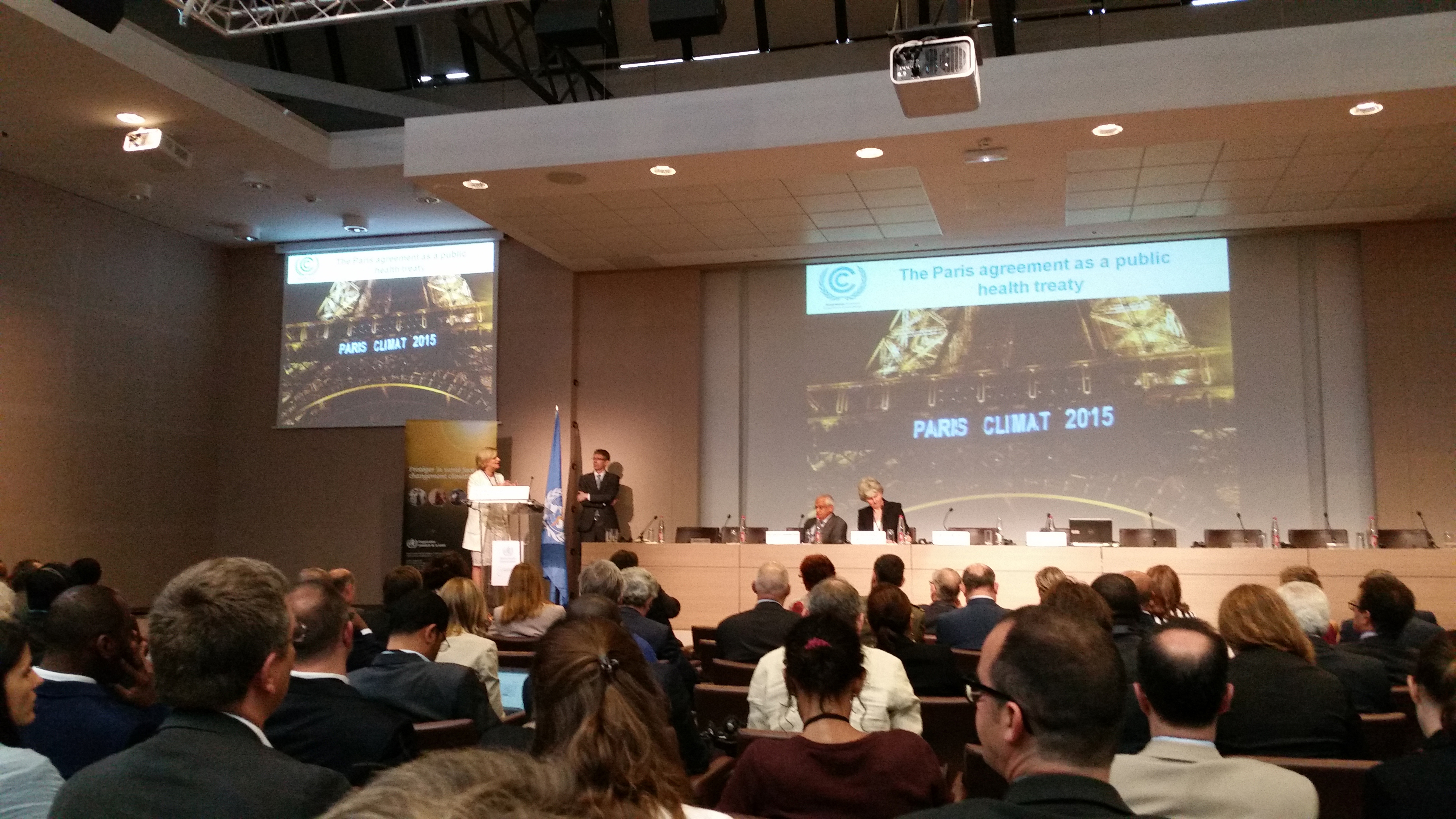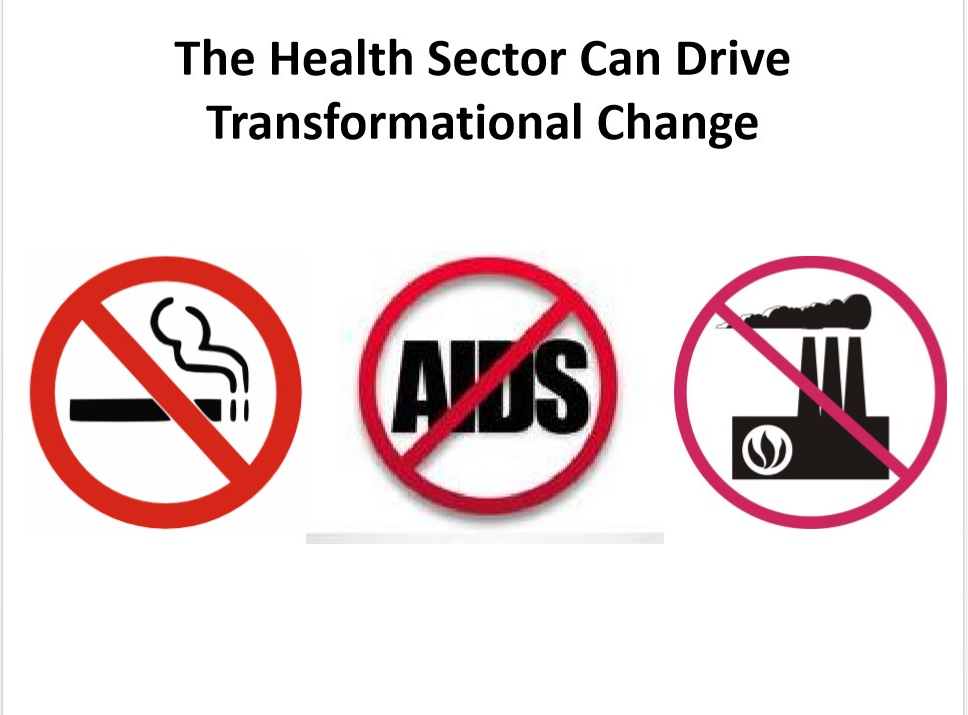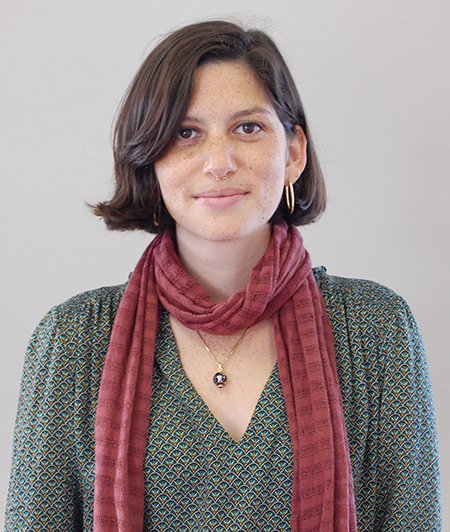HCWH at the WHO second Global Conference on Health & Climate
On the 7th and 8th of July, HCWH attended the WHO’s second Global Conference on Health and Climate in Paris. The high-level conference brought together environment and health ministers from around the world, technical experts, academia, and civil society to discuss how to build healthier societies through the implementation of the Paris Agreement.

Maria Neira, Director of Public Health for the WHO
Ms. Segolen Royal, France’s Environmental Minister and President of COP21, opened the conference by praising the efforts and achievements of the international environmental community in reaching a global climate agreement last December.
Yet the conference quickly turned its attention to expectations for COP22 in Marrakesh, and thow protect health from climate change. The Moroccan Minister of Environment, Dr. Hakima El Haite (who holds the Presidency of COP22) gave a motivational speech about the work ahead of us.
On the first day, the guest of honour was Letizia, the Queen of Spain. The Queen, who is the Food & Agriculture Organization (FAO) special ambassador for nutrition, spoke about the fragility of our food systems in the face of climate change and the threat this poses to human health and social stability. She also stressed that in order to achieve any of our climate and health goals, humanity must undergo a paradigm shift and drastically improve its relationship with the earth.
The conference covered two main areas of engagement for the health sector; to strengthen health system’s resilience to climate change, and to ensure the reduction of greenhouse gas emissions in order to protect health and the environment from the most devastating impacts of a heating climate.
The importance of strengthening health systems’ resilience was discussed from a number of angles. For example, the problem of limited access to energy and the devastating limitations this can cause in a hospital are an issue of major concern, particularly in developing nations, where vulnerable institutions become even more vulnerable in the face of climate change. Also, the recent example of the Zika virus outbreak was used to emphasize the urgent need to improve health information systems in order to enhance disease surveillance and develop early warning systems for emerging risks.
A key issue covered by the conference was the growing problem of air pollution in major cities throughout the world. Maria Neira, Director of Public Health for the WHO, presented the Breath Life[1] campaign, which was created to raise awareness about the seriousness of this threat to global public health. Air pollution continued to be a key focus of many other presentations throughout the two days.
On the second day the conference was split into parallel sessions, in one of which Josh Karliner, International Director of Health Care Without Harm (HCWH), spoke and emphasised the opportunities for the health sector to take the lead in climate action. He highlighted the past successes of health professionals in influencing health attitudes, such as by stigmatising smoking as unhealthy and “un-cool,” and the efforts in raising awareness about HIV/AIDS. He urged health professionals to demonstrate this same leadership in raising awareness about the impacts of fossil fuels on health, and to call for phasing out the use of fossil fuels in the health sector.

Slide from Josh Kraliner, International Director, HCWH
The conference was an inspiring couple of days that reminded us of the important work that lies ahead for HCWH Europe in inspiring and mobilising climate action both in individual hospitals and health systems, and at the EU level. We recognise the commitment of the wide array of experts from many sectors who participated in the conference and join us in our efforts to battle climate change, yet we expected to see a stronger engagement from medical practitioners and health specialists.
HCWH Europe calls on health professionals to take a strong personal stance in joining the fight against climate change; by raising awareness about the repercussions that it can have on human and environmental health, and to advocate for a complete divestment from fossil fuels in the healthcare sector.
Read More:
- HCWH Climate Publications: https://noharm-europe.org/issues/europe/climate-energy-publications
- Climate & Health Inforgaphic: https://noharm-europe.org/issues/europe/climate-and-health-infographic
- Climate Resources: https://noharm-europe.org/issues/europe/climate-energy-resources

- Ana-Christina Gaeta, Climate & Resources Policy Officer
